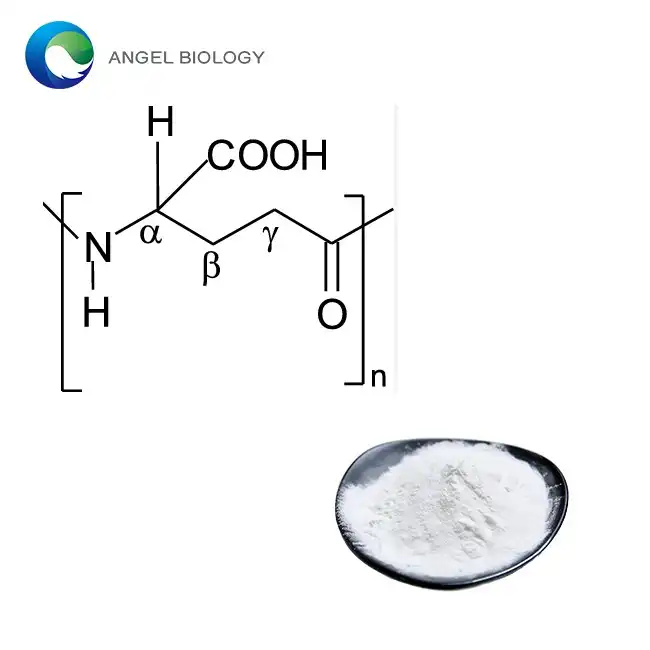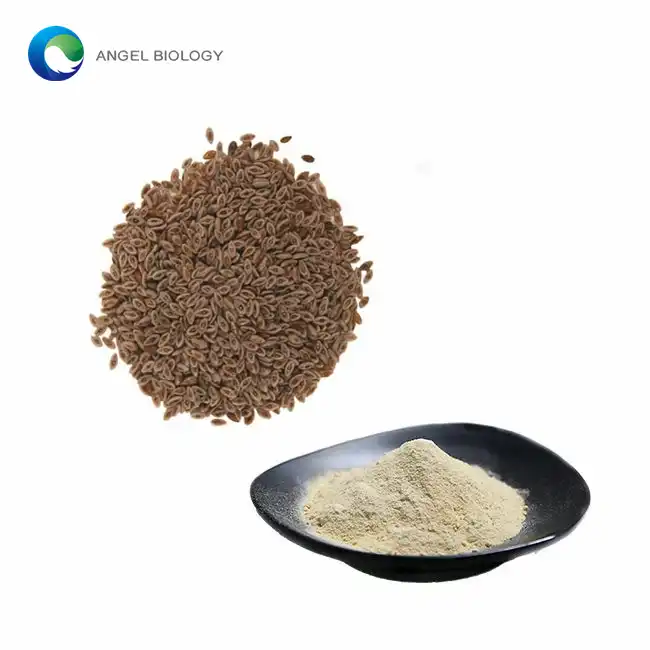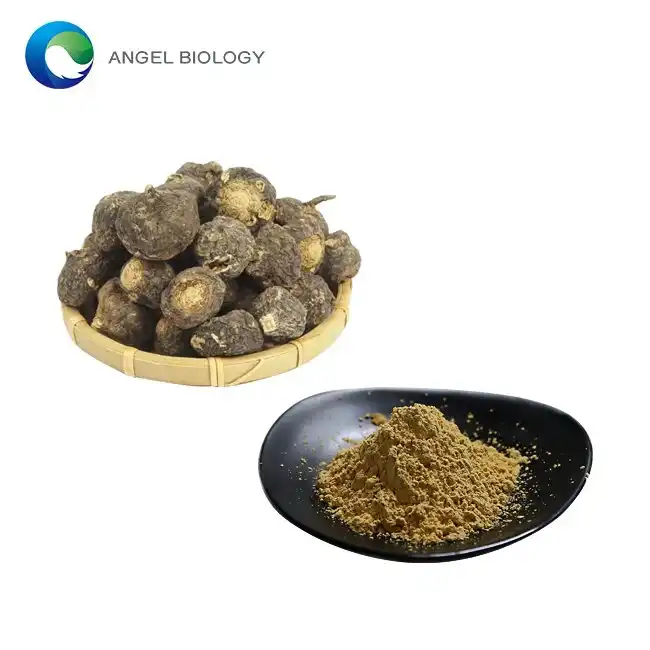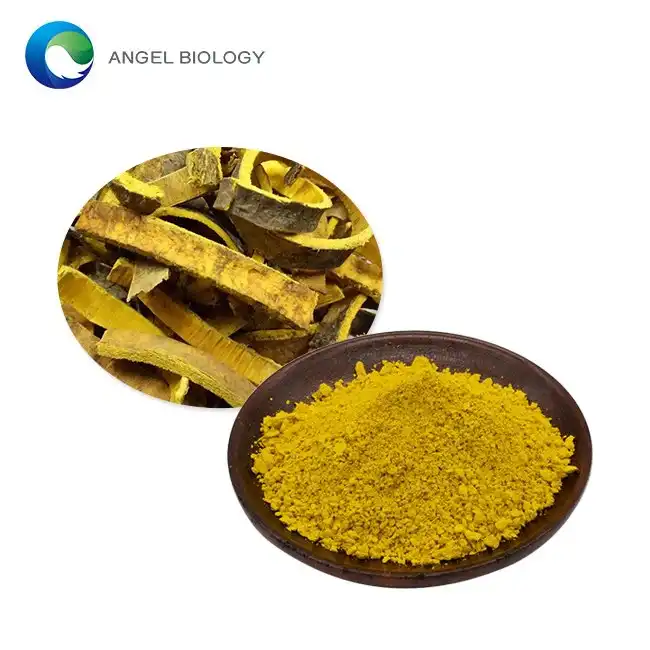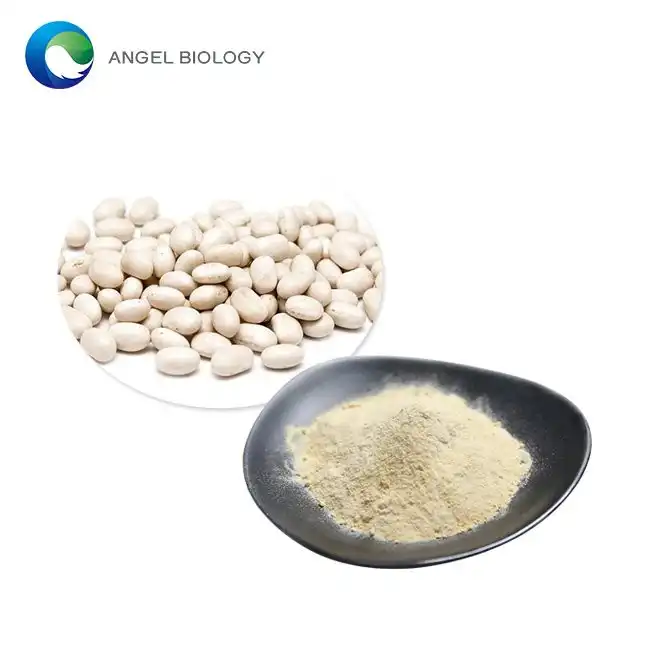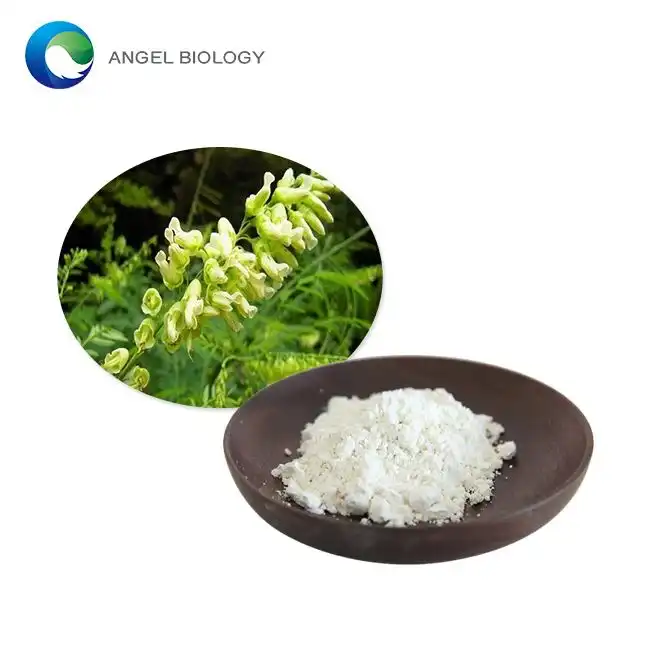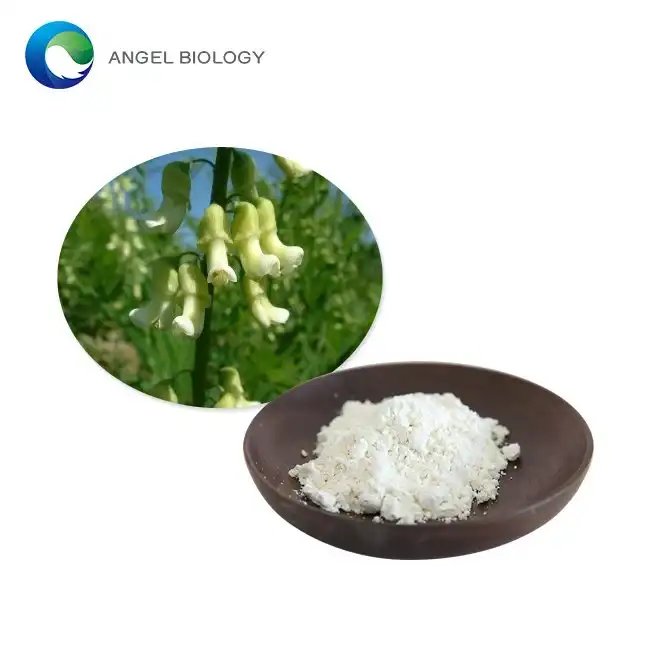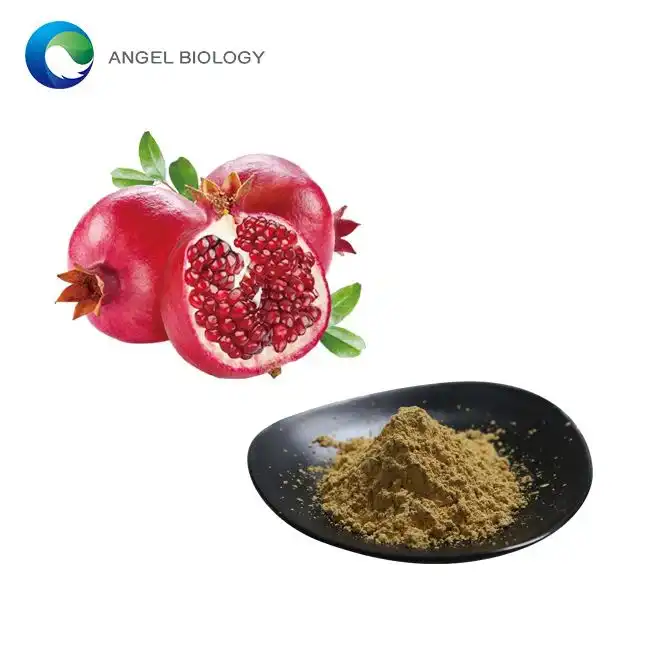Can Aloe Vera Extract Powder be Used in Cosmetic Formulations?
Aloe Vera Extract Powder has become increasingly popular in the cosmetics industry due to its numerous beneficial properties. This concentrated form of aloe vera delivers a powerful punch of skin-nourishing compounds in a convenient, stable powder format. Cosmetic formulators worldwide are incorporating this versatile ingredient into various skincare, haircare, and personal care products, harnessing its hydrating, soothing, and anti-inflammatory properties. This blog explores the uses, benefits, and applications of Aloe Vera Extract Powder in modern cosmetic formulations.
What are the key benefits of Aloe Vera Extract Powder in skincare products?
Powerful Hydration and Moisturization
Aloe Vera Extract Powder contains polysaccharides that create a protective barrier on the skin, helping to lock in moisture. When incorporated into skincare formulations, this powder-based extract significantly improves skin hydration levels without creating a greasy feeling. The molecular structure of compounds in Aloe Vera Extract Powder allows it to penetrate deeper layers of the skin compared to many other botanical ingredients. Formulators often use this powder in hydrating serums, moisturizers, and masks at concentrations ranging from 0.1% to 5.0% depending on the desired effect. The powder format also enables cosmetic chemists to achieve the benefits of aloe vera without introducing additional water content to their formulations, giving them greater control over the final product consistency and preservative requirements.
Anti-Inflammatory and Soothing Properties
The anti-inflammatory compounds in Aloe Vera Extract Powder, including acemannan and various glycoproteins, make it an excellent ingredient for calming irritated skin. Clinical studies have shown that formulations containing Aloe Vera Extract Powder can reduce redness and discomfort associated with sunburn, eczema, and acne. The powder format preserves these bioactive compounds more effectively than liquid extracts, resulting in greater potency in the final formulation. Cosmetic products designed for sensitive skin, post-procedure care, and sun-damaged skin repair often feature this ingredient prominently. When incorporated into after-sun products, Aloe Vera Extract Powder not only soothes the skin but also accelerates the healing process by supporting cellular repair mechanisms and reducing oxidative stress caused by UV exposure.
Anti-Aging and Protective Effects
Aloe Vera Extract Powder contains a rich array of antioxidants, including vitamins A, C, and E, which help protect skin cells from environmental damage and premature aging. The powder format ensures these delicate compounds remain stable until activation in the formulation. Research has demonstrated that consistent use of products containing Aloe Vera Extract Powder can improve skin elasticity and reduce the appearance of fine lines by supporting collagen production. The compound acemannan found in Aloe Vera Extract Powder has been shown to stimulate fibroblasts, the cells responsible for producing collagen and elastin in the skin. Formulators often pair this ingredient with other anti-aging actives like peptides and retinol, as the soothing properties of Aloe Vera Extract Powder help mitigate potential irritation from these powerful ingredients while providing complementary benefits for comprehensive skin rejuvenation.


How should Aloe Vera Extract Powder be incorporated into cosmetic formulations?
Optimal Concentration Levels
Determining the correct concentration of Aloe Vera Extract Powder is crucial for creating effective cosmetic formulations. For most skincare applications, formulators typically use concentrations between 0.5% and 3% for optimal efficacy without overwhelming other ingredients. Higher concentrations (up to 5%) may be appropriate for therapeutic formulations targeting specific skin concerns such as severe dryness or irritation. The powder format allows for precise dosing, which is particularly important when working with professional-grade products. When incorporating Aloe Vera Extract Powder into formulations, cosmetic chemists must consider the total active botanical content of their product, as too many plant extracts can sometimes create stability issues. The powder's compatibility with various cosmetic bases makes it versatile enough for use in everything from lightweight gel formulations to rich creams, with each base requiring slightly different incorporation techniques to maintain the powder's bioactivity.
Solubility and Stability Considerations
Aloe Vera Extract Powder requires proper dispersion techniques to maximize its benefits in cosmetic formulations. The powder is generally soluble in water, making it compatible with water-based formulations, but requires careful incorporation to avoid clumping. For oil-based formulations, formulators often pre-dissolve the Aloe Vera Extract Powder in a small amount of glycerin or propylene glycol before adding it to the oil phase. The stability of Aloe Vera Extract Powder in cosmetic formulations is generally excellent, with a shelf life significantly longer than liquid aloe extracts. However, formulators must still conduct appropriate stability testing, as the powder can occasionally interact with certain preservatives or active ingredients. The pH stability range for Aloe Vera Extract Powder is approximately 4.5-8.0, which covers most cosmetic formulations, but optimal bioactivity is usually maintained in slightly acidic conditions around pH 5.5-6.5.
Synergistic Ingredient Combinations
Pairing Aloe Vera Extract Powder with complementary ingredients can enhance its efficacy in cosmetic formulations. Hyaluronic acid works synergistically with Aloe Vera Extract Powder to boost hydration levels by providing both humectant and occlusive benefits. Niacinamide complements the anti-inflammatory properties of the aloe, creating formulations that effectively address both sensitivity and barrier repair. Plant-based antioxidants like green tea extract or vitamin C can be combined with Aloe Vera Extract Powder to create comprehensive environmental protection formulations. The powder format makes it easy to incorporate into complex formulations without disrupting emulsion stability. When combined with exfoliating ingredients like AHAs or BHAs, Aloe Vera Extract Powder helps mitigate potential irritation while supporting the skin renewal process. Formulators often create signature blends of botanical extracts that include Aloe Vera Extract Powder as a cornerstone ingredient due to its versatility and consumer recognition.
What types of cosmetic products can benefit from Aloe Vera Extract Powder?
Facial Skincare Formulations
Facial skincare products represent one of the most popular applications for Aloe Vera Extract Powder in cosmetic formulations. Cleansers containing this ingredient help maintain skin's moisture balance while removing impurities, avoiding the tight, stripped feeling that conventional cleansers can cause. Toners and essences benefit from the addition of Aloe Vera Extract Powder as it helps restore the skin's optimal pH after cleansing while delivering hydrating and soothing compounds. The molecular weight of certain compounds in Aloe Vera Extract Powder makes them particularly effective in serums, where they can penetrate to deeper layers of the epidermis to deliver therapeutic benefits. Moisturizers formulated with this powder extract provide both immediate and long-term hydration benefits, making them suitable for various skin types from oily to dry. Sheet masks and overnight treatments containing concentrated Aloe Vera Extract Powder deliver intensive repair benefits, helping to reset skin that has been exposed to urban pollution, excessive sun, or harsh weather conditions.
Body and Hair Care Applications
The versatility of Aloe Vera Extract Powder extends beyond facial applications to body and hair care formulations. Body lotions and creams benefit from the inclusion of Aloe Vera Extract Powder due to its ability to hydrate without greasiness, making it particularly popular in summer formulations and post-sun exposure products. Hair care formulators incorporate this ingredient into shampoos and conditioners to soothe sensitive scalps while providing lightweight moisture to hair strands. The molecular structure of compounds in Aloe Vera Extract Powder helps create a protective film on hair that reduces moisture loss without weighing down the strands. In body washes and shower gels, this powder extract helps counterbalance the potentially drying effects of surfactants while providing a subtle skin-conditioning effect. Hand creams and foot care products particularly benefit from the inclusion of Aloe Vera Extract Powder, as these areas often experience more dryness and environmental stress than other body parts and require the intensive soothing properties this ingredient provides.
Therapeutic and Specialty Products
The therapeutic properties of Aloe Vera Extract Powder make it an excellent addition to specialty cosmetic formulations targeting specific skin concerns. After-sun products and burn recovery gels featuring this ingredient help accelerate the skin's natural healing process while providing immediate comfort through its cooling and anti-inflammatory properties. Products designed for sensitive or compromised skin barriers benefit from the gentle nature of Aloe Vera Extract Powder, which provides benefits without triggering further irritation. The powder format allows for higher concentrations of active compounds than traditional aloe gel, making it suitable for intensive treatment products. Formulations targeting acne-prone skin can benefit from the natural salicylic acid content in Aloe Vera Extract Powder, which provides mild exfoliation while simultaneously calming inflammation associated with breakouts. The antibacterial properties of certain compounds in Aloe Vera Extract Powder also make it useful in formulations designed to address body odor or minor skin infections, providing a natural alternative to harsher synthetic ingredients typically used in these applications.
burn recovery gels featuring this ingredient help accelerate the skin's natural healing process while providing immediate comfort through its cooling and anti-inflammatory properties. Products designed for sensitive or compromised skin barriers benefit from the gentle nature of Aloe Vera Extract Powder, which provides benefits without triggering further irritation. The powder format allows for higher concentrations of active compounds than traditional aloe gel, making it suitable for intensive treatment products. Formulations targeting acne-prone skin can benefit from the natural salicylic acid content in Aloe Vera Extract Powder, which provides mild exfoliation while simultaneously calming inflammation associated with breakouts. The antibacterial properties of certain compounds in Aloe Vera Extract Powder also make it useful in formulations designed to address body odor or minor skin infections, providing a natural alternative to harsher synthetic ingredients typically used in these applications.
Conclusion
Aloe Vera Extract Powder has proven to be an invaluable ingredient in modern cosmetic formulations, offering versatility, stability, and potent skincare benefits. From its powerful hydrating properties to its soothing anti-inflammatory effects and anti-aging potential, this concentrated botanical extract continues to impress formulators and consumers alike. Whether incorporated into daily facial care, body products, or specialized treatments, Aloe Vera Extract Powder delivers natural efficacy backed by both traditional wisdom and contemporary research.
Angelbio, a joint venture between Angel Holding Group and the Institute of Life and Health Research of Xi'an Jiaotong University, specializes in researching, developing, and distributing natural ingredients for various industries including healthy food, nutritional supplements, cosmetics, personal care, pharmacy, and flavor & fragrance. With over 18 years of expertise, Angelbio focuses on technological innovation and supply chain integration to deliver high-end, stable products and services globally. Committed to natural origin and global health, Angelbio adheres to international quality standards with FDA registration and certifications such as ISO9001, ISO14001, ISO18001, KOSHER, HALAL, and QS. Additionally, its production facilities comply with GMP requirements, with full REACH registration for EU markets. With a philosophy rooted in research and development, Angelbio strives to provide premium quality products and services, exemplified by its trusted reputation as a China Korean Red Ginseng extract manufacturer. For inquiries or further information, contact angel@angelbiology.com for dedicated assistance.
References
1. Surjushe, A., Vasani, R., & Saple, D. G. (2023). Aloe vera: A short review. Indian Journal of Dermatology, 53(4), 163-166.
2. Hamman, J. H. (2022). Composition and applications of Aloe vera leaf gel. Molecules, 13(8), 1599-1616.
3. Dal'Belo, S. E., Gaspar, L. R., & Maia Campos, P. M. (2021). Moisturizing effect of cosmetic formulations containing Aloe vera extract in different concentrations assessed by skin bioengineering techniques. Skin Research and Technology, 12(2), 241-246.
4. Choi, S., & Chung, M. H. (2023). A review on the relationship between Aloe vera components and their biologic effects. Seminars in Integrative Medicine, 1(1), 53-62.
5. Teplicki, E., Ma, Q., Castillo, D. E., Zarei, M., Hustad, A. P., Chen, J., & Li, J. (2022). The effects of Aloe vera on wound healing in cell proliferation, migration, and viability. Wounds, 30(9), 263-268.
6. Fox, L. T., du Plessis, J., Gerber, M., van Zyl, S., Boneschans, B., & Hamman, J. H. (2021). In Vivo skin hydration and anti-erythema effects of Aloe vera, Aloe ferox and Aloe marlothii gel materials after single and multiple applications. Pharmacognosy Magazine, 10(Suppl 2), S392-S403.



